- We are a manufacturer of oil press equipment and grain and oil processing equipment.
- Email:2334065214@qq.com
As one of the largest palm oil producers in Africa, Nigeria’s palm kernel oil processing business has attracted a lot of attention in recent years due to policy support, raw material cost advantage and growing market demand. This article will analyze the profitability of this business in Nigeria from the dimensions of raw material supply, policy environment, market demand and potential risks.
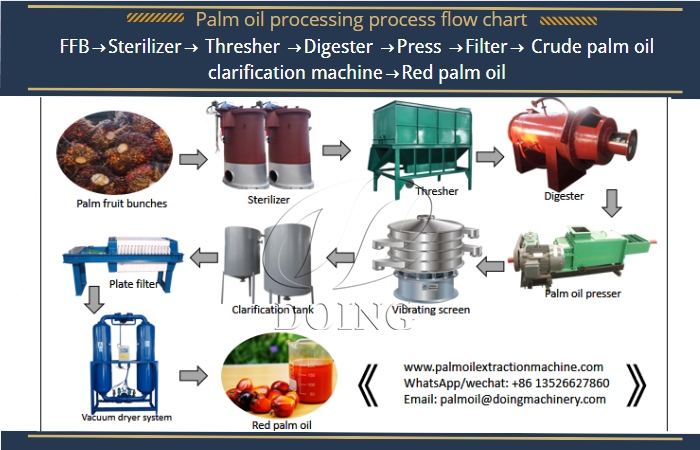
I. Raw material supply: the double advantages of low cost and high oil content
The core advantage of palm kernel oil production in Nigeria lies in the low cost of raw materials and high oil content. Palm kernel oil content of 50% -55%, much higher than other oil crops, and the local palm kernel has long been used as fuel, not fully developed, resulting in low raw material prices. Small processing equipment, for example, can handle 500 kilograms of palm kernel per hour, the output of 215-240 kilograms of palm kernel oil, the daily output of up to 2.15-2.4 tons, according to the current international market price estimates, the daily sales of up to thousands of U.S. dollars. In addition, the Nigerian government plans to raise the annual palm oil production from 600,000 tons to 5 million tons by 2027, and the stability of raw material supply will be further enhanced.
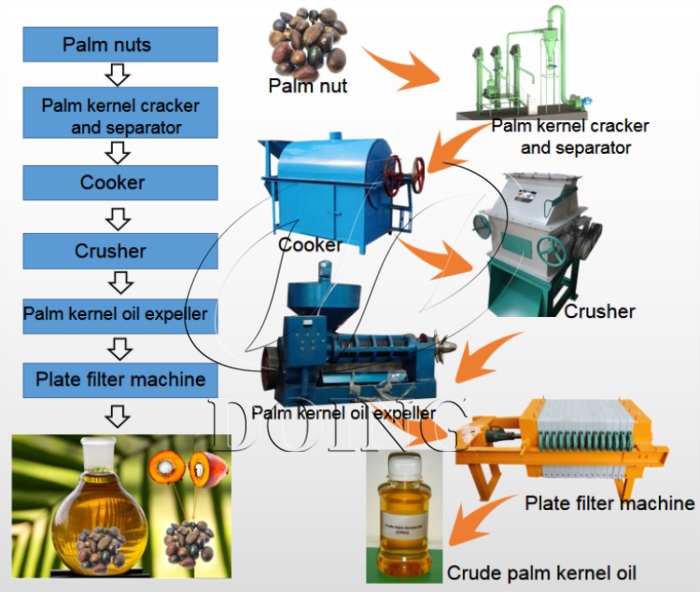
Second, policy support: government subsidies and tax incentives
The Nigerian government has listed the palm oil industry as a key development area, and introduced a number of policies to support the processing business. For example, it plans to invest 180 billion naira (about 500 million U.S. dollars) to expand the planting area and enhance the processing capacity, and at the same time, it encourages enterprises to invest by lowering the interest rate of bank loans. In addition, China’s cooperation with Nigeria has significantly boosted industrial upgrading. China has provided technical support and financial assistance to build modern processing plants to improve production efficiency and the quality of refined oil products. These policies not only reduce the operating costs of enterprises, but also enhance the competitiveness of Nigerian palm kernel oil in the international market.
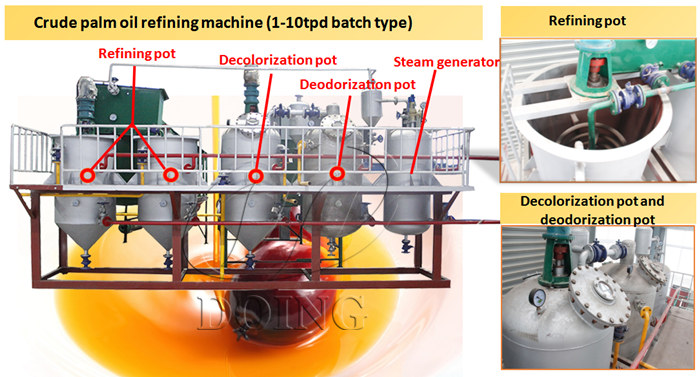
III. Market Demand: Domestic Consumption and Export Potential
The domestic demand for palm kernel oil in Nigeria continues to grow. As one of the major edible oils, palm kernel oil plays an important role in the local diet, and the current supply is still unable to meet the demand. In addition, demand for palm kernel oil is rising in the global vegetable oil market.2025 Global palm oil demand remains strong due to biodiesel policies (e.g., Indonesia’s B40 program) and tight supply of alternative fats and oils. Nigeria will have the opportunity to fill the market gap if it can upgrade its processing capacity, especially for export to other African countries and Europe.
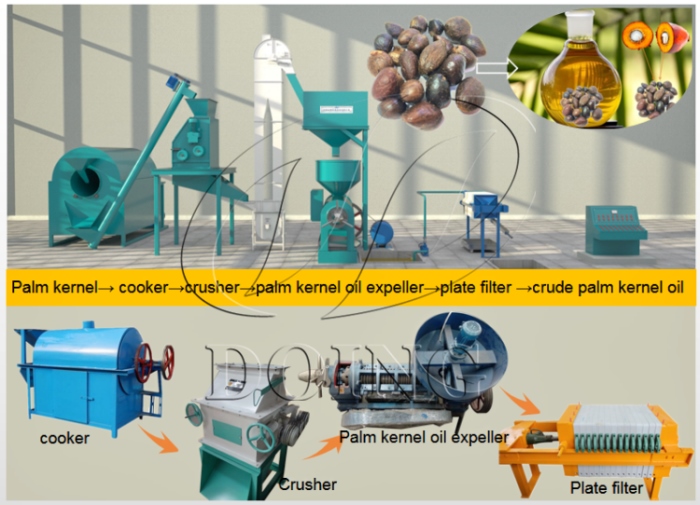
IV. POTENTIAL RISKS: TECHNICAL BOTTOMS AND MARKET COMPETITION
Despite the promising outlook, palm kernel oil production in Nigeria still faces challenges. At the technical level, local processing equipment is generally outdated, leading to low oil yield and serious waste. Although China’s assistance has improved the conditions of some factories, the overall technical level still needs to be upgraded. At the market level, fluctuations in international palm oil prices may affect profit margins. For example, palm oil prices are expected to rise in 2025 due to supply constraints, but if production increases exceed expectations or alternative oil prices fall, this could lead to a price correction. In addition, global biodiesel policy uncertainty (such as the sustainability of subsidy funding) may also affect demand stability.
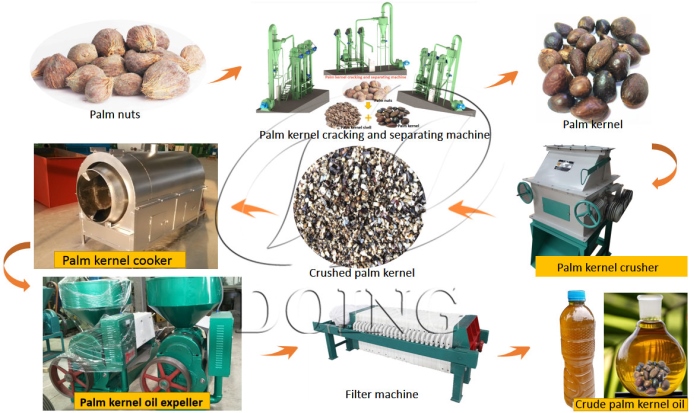
V. Investment Recommendations: Scale-up and Diversification
For companies interested in investing in the palm kernel oil business in Nigeria, the following strategies are recommended:
Scale-up production: introduce advanced equipment to improve processing efficiency and reduce unit costs. For example, choose professional equipment manufacturers to customize solutions to achieve a daily production capacity of more than 10 tons.
Diversify product lines: In addition to edible oil, develop by-products such as palm kernel meal (for feed) and biodiesel to enhance added value.
Establish supply chain system: cooperate with local farmers to ensure stable supply of raw materials, and explore export channels to diversify market risks.
Pay attention to policy dynamics: closely follow the policy changes in Nigeria and the international market, and adjust the production plan in time.
Palm kernel oil production business in Nigeria has significant advantages in terms of raw material cost, policy support and market demand, but needs to overcome technical bottlenecks and market fluctuation risks. For enterprises with capital and technical strength, they are expected to realize considerable gains in this field through large-scale production and diversified development. In the future, with the further upgrading of Nigeria’s palm oil industry, this business may become a new hot spot for agricultural investment in Africa.
gao
Henan Zhongrui Grain is a high-tech enterprise specializing in the research, development, manufacture and sales of oil press equipment, and has been deeply engaged in the field of oil processing for more than ten years. The company integrates design, production and testing, and its products cover screw oil press, hydraulic oil press, automatic refining production line, etc., which are suitable for rapeseed, peanut, soybean, sesame and other oilseeds, and help customers to realize efficient, energy-saving and environmentally friendly oil and grease production.
Contact Us
Product Center
menu
Recommended
© 2025. All Rights Reserved. 豫ICP备19039166号 Theme By XinTheme












